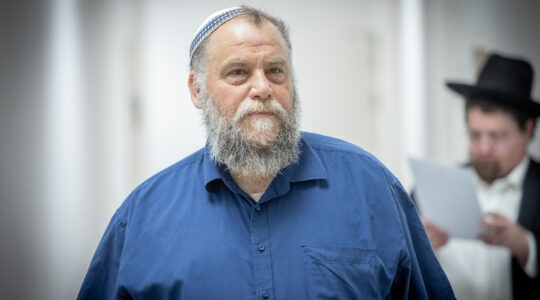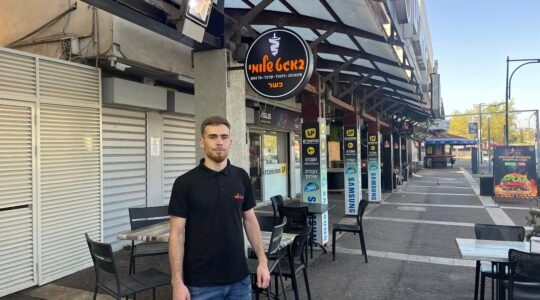TEL AVIV (MarketWatch) – How much does it hurt? It’s a simple question, but for doctors it can be one of the knottiest in assessing patients.Israeli startup Algodyne Ltd. aims to change that.Algodyne, based in the Tel Aviv suburb of Ramat ha’Sharon, is targeting pain measurement with a proprietary gauge designed to objectively quantify pain.The technology’s goal: When a patient hurts, the doctor “will be able to see the intensity of that pain scaled on a screen” and more quickly and accurately treat it, said Samuel Cohen, chairman and chief executive of Algodyne.Doctors can objectively measure traditional vital signs – pulse, blood pressure, temperature and respiration – because the efforts of one person’s heart and lungs, for example, can be scaled against another’s.But measuring pain is different because doctors don’t have a similar objective scale. Rather, they rely on patients to say where they hurt and how severely. Measurement is particularly difficult with a small child, impaired adult or a comatose patient, who can’t describe the condition with words or by pointing to pictorial charts.Measuring pain is critical because it helps a doctor diagnose and treat an ailment – it is, for example, a factor in deciding whether to prescribe a painkiller, which one, and how large a dosage.”What might be a serious pain for you might be minor for someone else,” says Yehezkel Caine, a surgeon and chief executive of Sarah Herzog Hospital in Jerusalem, who consults to Algodyne.Another ambiguity doctors face is how a patient feels over time: “How does the patient compare the pain he has now to what he had last week?” the doctor says.Pain measurement also becomes an issue in surgery, Caine says: A doctor “can’t always tell whether a patient is feeling pain when he’s at least theoretically under anesthetic.”Then there’s the legal side: When a person is injured in an accident and files a claim, the insurance companies, the lawyers and judges have no objective way of determining how much pain the complainant truly is feeling, Caine notes.Pain is also expensive. “Production lost to claims related to pain total about $100 billion a year in the U.S.,” Algodyne’s Cohen said.How the system works”We have identified an electro-physiological signal generated when pain occurs,” Cohen said. The technology reads the signal from the body through sensors on the forehead.”Our hardware picks up the signal. Proprietary algorithms process the signal to produce a result that we have been able to correlate with a high degree of accuracy in a controlled environment with a” visual analog scale report, Cohen said.A visual analog scale is a widely used numerical scale through which a patient indicates the intensity of pain. Establishing the correlation is important, Cohen said, because it validates the use of a physiologically objective measure of what – up to now – has been subjective mental evaluations. See more health-care coverage.Cohen, 59, is a gregarious British-born and -educated attorney and investment banker, who sports a bushy salt-and-pepper ponytail. He runs a number of closely held companies with interests including laryngoscopes, which are used for intubation, kits for setting up household tropical aquariums, and testing and certification services for high-tech companies.Algodyne was founded in 1998, and Cohen took control of the company in 2005. The management team includes Dr. David Yarnitsky, head of neurology at Rambam Hospital in Haifa, and Daniel Lange, the company’s chief technology officer, who is an electrical engineer specializing in electro-physiological signal processing and analysis.Algodyne has secured six U.S. patents. It has European clearance for a prototype of the system, including the disposable sensors as well as the hardware and software. It hopes to have a first-generation system available to researchers in 2008 and a clinical device available for use by hospitals and pain clinics in 2010.The company also sees substantial potential for the system among health-maintenance organizations, which it says will benefit “from reductions in over-treatment and under-treatment costs.”And it sees opportunities to cooperate with pharmaceutical companies as new analgesics make their way through clinical trials.Cohen says he expects the system to cost a few thousands of dollars, with additional revenue generated by sales of the sensors. Algodyne puts the value of its market for the systems and sensors in the billions of dollars. The company is closely held and won’t disclose financials.Cohen will be presenting Algodyne’s system at the U.S.-Israel Venture Summit on March 19 and 20 in Newark, N.J. The conference will bring together more than two dozen venture-capital investors and around 40 emerging-technology products and services companies seeking financing.Robert Daniel is MarketWatch’s Middle East bureau chief, based in Tel Aviv.This article was provided by MarketWatch from Dow Jones. The original version of the article can be found here on the MarketWatch site.





